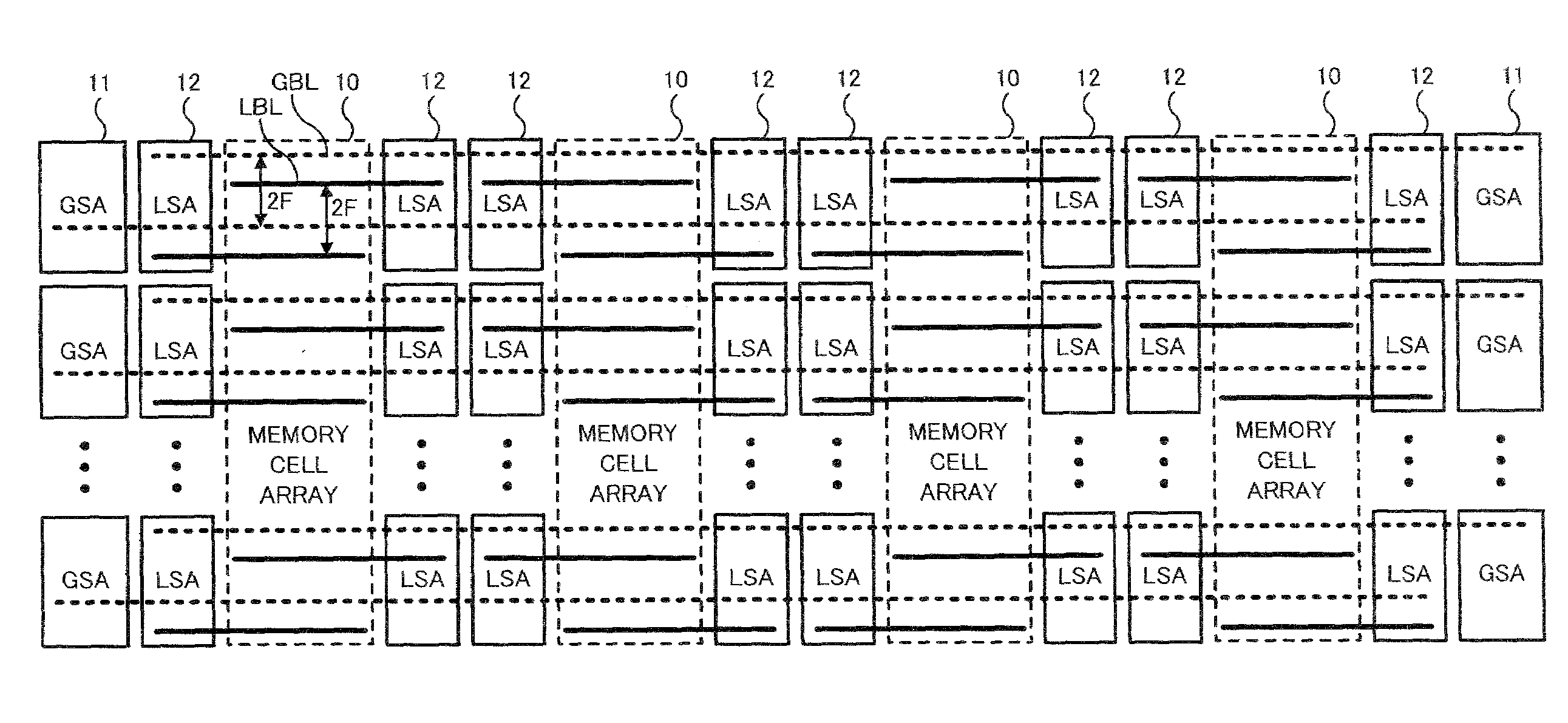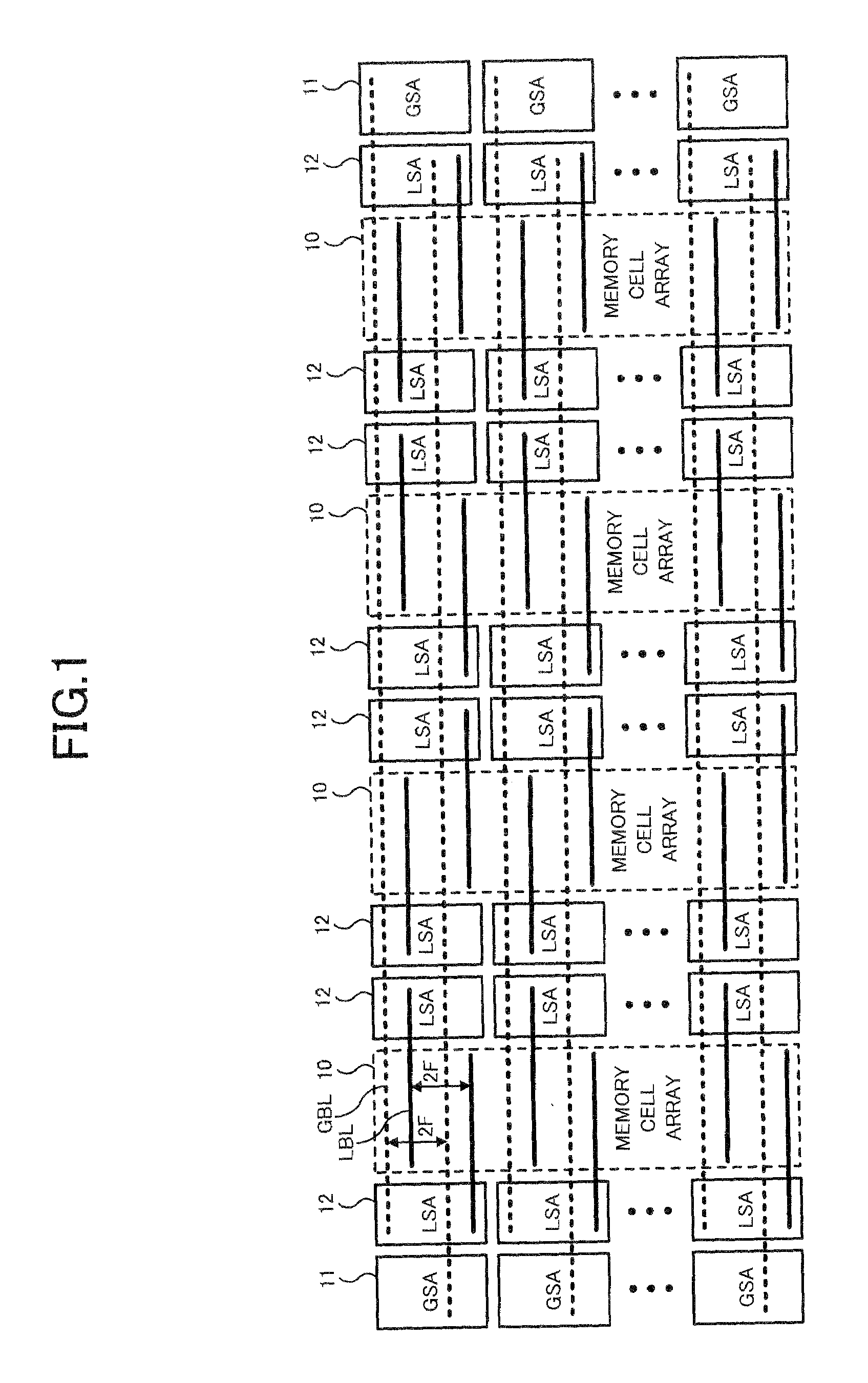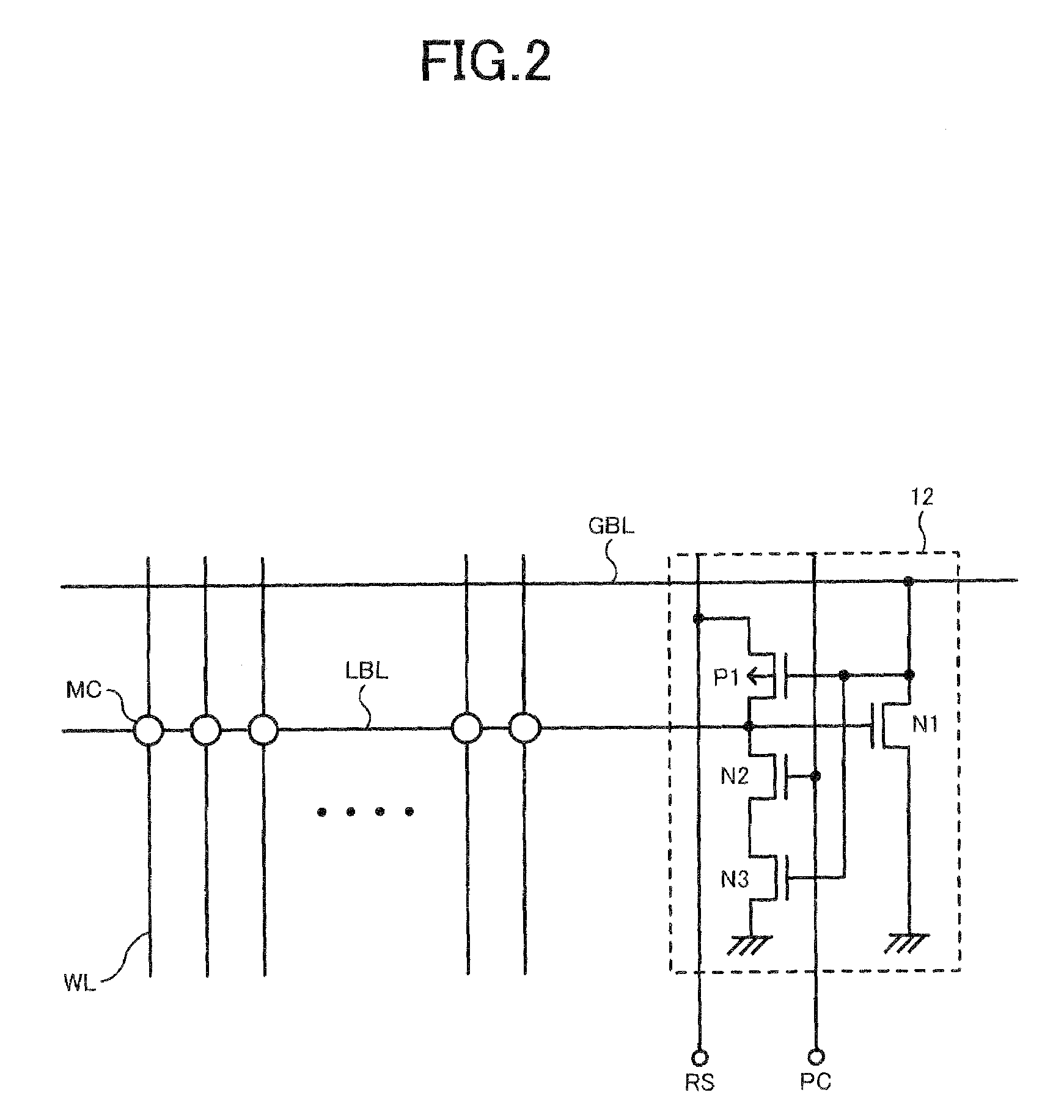Semiconductor memory device
a memory device and semiconductor technology, applied in the field of semiconductor memory devices, can solve the problems of difficult to amplify a minute potential difference, long length of bit lines, and performance problems, and achieve the effects of reducing the size of memory cells, and suppressing the increase in the entire area
- Summary
- Abstract
- Description
- Claims
- Application Information
AI Technical Summary
Benefits of technology
Problems solved by technology
Method used
Image
Examples
first embodiment
[0059]A first embodiment of the present invention will be described. FIG. 1 shows an entire configuration of a DRAM of the first embodiment. In FIG. 1, there are shown four memory cell arrays 10, a plurality of global sense amplifiers 11, a plurality of local sense amplifiers 12, a plurality of global bit lines GBL, and a plurality of local bit lines LBL.
[0060]Each memory cell array 10 includes a large number of memory cells (not shown) formed at all intersections of a plurality of word lines (not shown) and a plurality of local bit lines LBL intersecting therewith. For example, by arranging M word lines WL and N local bit lines LBL in one memory cell array 10, the memory cell array 10 becomes capable of storing M×N bit data and the entire storage capacity of the DRAM is 4×M×N bits. As shown in FIG. 1, the plurality of local bit lines LBL is regularly aligned with a pitch 2F based on a design rule value F in a word line extending direction. Besides, the plurality of global bit lines...
second embodiment
[0089]A second embodiment of the present invention will be described. The entire configuration of a DRAM of the second embodiment is the same as the first embodiment (FIG. 1), so description thereof is omitted. FIG. 7 shows a configuration example of the local sense amplifier 12 of the second embodiment. The local sense amplifier 12 of FIG. 7 is a single-ended sense amplifier including four NMOS transistor N11, N12, N13 and N14. In the second embodiment, since the local sense amplifier 12 is configured using only NMOS transistors without using PMOS transistors, a well for separating PMOS and NMOS areas is not required, so that the layout area of the local sense amplifier 12 can be further reduced.
[0090]In FIG. 7, the NMOS transistor N11 is connected between the global bit line GBL and ground in the same manner as the NMOS transistor N1 of FIG. 2. Meanwhile, the NMOS transistor N12 is connected between the gate of the NMOS transistor N11 and ground, and the NMOS transistor N13 is con...
third embodiment
[0107]A third embodiment of the present invention will be described. The entire configuration of a DRAM of the third embodiment is the same as the first embodiment (FIG. 1), so description thereof is omitted. FIG. 12 shows a configuration example of the local sense amplifier 12 of the third embodiment. The local sense amplifier 12 of FIG. 12 is a single-ended sense amplifier including four NMOS transistor N21, N22, N23 and N24. In the third embodiment, it is common to the second embodiment that the layout area can be reduced by configuring the local sense amplifier 12 using only NMOS transistors, however its circuit configuration is different.
[0108]In FIG. 12, NMOS transistor N21, N23 and N24 have the same functions as those of the NMOS transistor N11, N12 and N14 of FIG. 7. Meanwhile, the NMOS transistor 13 of FIG. 7 is not provided, and the NMOS transistor N22 is connected between the global bit line GBL and the NMOS transistor N21. The control signal line RT is connected to the g...
PUM
 Login to View More
Login to View More Abstract
Description
Claims
Application Information
 Login to View More
Login to View More - R&D
- Intellectual Property
- Life Sciences
- Materials
- Tech Scout
- Unparalleled Data Quality
- Higher Quality Content
- 60% Fewer Hallucinations
Browse by: Latest US Patents, China's latest patents, Technical Efficacy Thesaurus, Application Domain, Technology Topic, Popular Technical Reports.
© 2025 PatSnap. All rights reserved.Legal|Privacy policy|Modern Slavery Act Transparency Statement|Sitemap|About US| Contact US: help@patsnap.com



